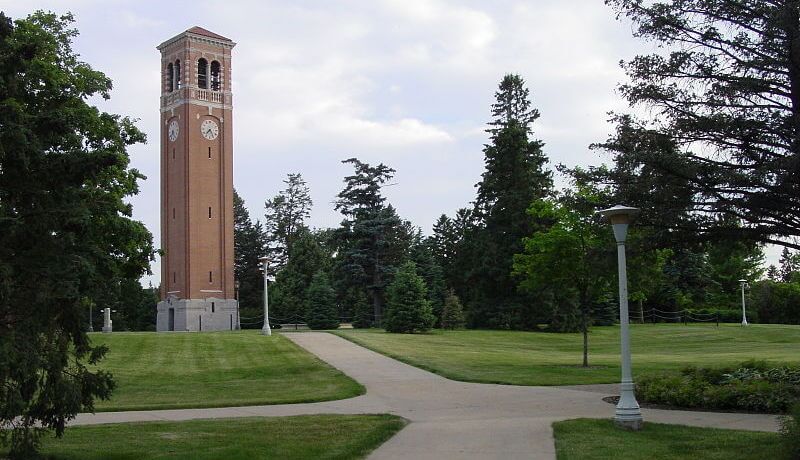
The District Court for Polk County issued a ruling that suggests the Iowa Board of Regents engaged in illegal practices when it continually delayed negotiations with the University of Northern Iowa’s Faculty union in 2017.
But, Judge Jeffrey Farrell ultimately decided the court will not look at a judicial review filed against the Iowa Public Employment Relation Board for a slap-on-the-wrist punishment for the Regents alleged misconduct, even though the court admits the delay may have directly negatively impacted the benefits package the United Faculty negotiated that year.
What’s more, Farrell wrote: “It is unfortunate that some intermediate remedy does not exist to impose consequences on BOR to prevent a similar violation in the future.”
[inline-ad id=”5″]
Back in 2017, the Iowa Board of Regents continuously pushed back dates to sit down and negotiate with the United Faculty multiple times until after House File 291 was passed, which limited collective bargaining rights for public employees.
At one point in the process, the United Faculty offered the Board of Regents 14 different meeting dates and times. The Board of Regents rejected all 14.
“[The Board of Regents] learned that it would be advantaged in negotiations if it could delay long enough for the legislation to pass,” Farrell wrote. “That is exactly what it did. It reaped the desired award at United Faculty’s expense.”
[inline-ad id=”0″]
And come at an expense it did. House File 291 limited the United Faculty to a 1.1 percent increase.
“It is unclear what United Faculty might have negotiated or been awarded under the old law, but the union could have at least argued for a greater amount,” Farrell wrote. “It had consistently argued for a greater amount throughout negotiations.”
“If these facts were the only considerations, the remedy would scream out for something greater than a cease and desist order,” Farrell wrote. “This is a clear instance of one party winning by engaging in an illegal practice.”
[inline-ad id=”1″]
In the end, Farrell argues, the United Faculty wants the court to rewind the clock in order to “put the parties in the same place they were at the time BOR engaged in bad faith by refusing to negotiate.”
But, the amendments to chapter 20 became effective on Feb. 17, 2017, so the Public Employment Relations Board followed the current law when it issued its ruling that says the Board will have to issue an apology to the Faculty Union last year.
“PERB’s decision as a remedy is supported by reason and evidence and must be affirmed,” the Farrell wrote. “The petition for judicial review is hereby denied.”
[inline-ad id=”2″]
by Paige Godden
Posted 1/16/20
Politics

Biden marks Earth Day by announcing $7 billion in solar grants
The Biden administration on Monday announced the recipients of its Solar For All Program, a $7 billion climate program that aims to lower energy...

6 terrifying things that could happen if the Comstock Act is used to target abortion
Does 1873 sound like a really, really long time ago? Well, that’s because it is—but if Republicans and far-right anti-abortion activists have their...
Local News

No more Kum & Go? New owner Maverik of Utah retiring famous brand
Will Kum & Go have come and gone by next year? One new report claims that's the plan by the store's new owners. The Iowa-based convenience store...

Here’s a recap of the biggest headlines Iowa celebs made In 2023
For these famous Iowans, 2023 was a year of controversy, career highlights, and full-circle moments. Here’s how 2023 went for the following Iowans:...




